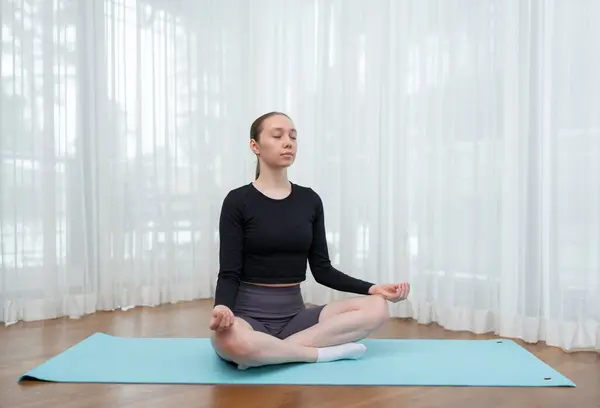
“If I slept with that lamp over there, I’d fall in love with it!” That’s how rapidly our heads can become intoxicated by the excitement of a new romance, says one dating expert. The excitement of immediate chemistry is legitimate—but so is the letdown that commonly happens when matters proceed too quickly, leaving others baffled as to why their romance tales continue to end before they even get a chance to start.
For anyone who’s ever found themselves thinking about a future after only a few dates, or feeling lost when a new relationship doesn’t pan out, you’re not alone. Modern dating effectively begs for the fast-forward button, but the healthiest, happiest relationships are founded on a foundation of patience, self-awareness, and boundaries. Here’s how to recognize the signs you’re rushing too quickly—and what to do instead, so you can finally build a relationship that lasts.

1. Recognize the Red Flags of Rushing
Moving too quickly in a relationship isn’t just about spending every waking moment together. It’s about skipping over the slow, steady process of truly getting to know someone. Signs include ignoring red flags, planning your future together after a few dates, or feeling anxious when you’re not constantly texting. As psychologist Mert Şeker points out, “Making joint plans for the future without going through these processes may disrupt the course of the relationship or create an unhealthy situation.” If you’re brushing off uncomfortable behaviors or sacrificing your own needs for the sake of connection, it’s time to pause. The rush can feel amazing, but it often means missing crucial clues about compatibility and long-term potential. Going too quickly usually involves bypassing the important steps of really getting to know someone.

2. Establish Boundaries Early and Clearly Express Them
Boundaries are not about building walls—they’re about building a bridge to greater connection. Relationship coach Dionne Eleanor explains, “Real love doesn’t push boundaries—it respects them.” Placing boundaries on the amount of time you spend together, the speed at which you get intimate, or what you feel is yours to share (social media or talk about) establishes mutual respect. As told by Neil Wilkie, author of The Relationship Paradigm, “Clear boundaries are essential for our own mental health and self-esteem.” If saying no makes you anxious, begin small. Practice asserting your needs and see how your partner reacts—someone who’s worth your time will respect your boundaries, not try to push up against them. Boundaries establish the fundamental rules for how a person prefers to be treated.

3. Stay Independent and Focus on Your Own Life
It’s easy to let a new love dominate your schedule, but staying in touch with your own interests, friends, and routines is essential for a healthy relationship. As one authority describes it, “A partner isn’t meant to fill some empty void within you that is crying out to be filled.”. They must be a pleasant addition to your life.” If you catch yourself abandoning your friends or cutting out on your hobbies, it’s a sign that you’re losing yourself in the relationship. It’s essential to have personal autonomy in order to achieve long-term success in a relationship. Keep your calendar level and don’t hesitate to say no to plans—even with someone you really like. The right partner will be able to accommodate your desire for space and self-care.

4. Take It Slow with Physical Intimacy
Rushing into bed before emotional trust is established can hasten attachment—and sometimes not for the better. Psychologist Mert Şeker explains, “If you’re progressing too fast sexually, it can be an indication that the emotional connection hasn’t been developed enough or that a strong foundation has not yet been established.” Take your time to discuss boundaries and comfort levels prior to engaging in physicality. Waiting on intimacy provides both of you space to establish trust, communicate freely, and ensure you’re on the same page. If you’re feeling pushy or uncomfortable, trust your instincts—your gut is there to keep you safe. Hasting through sexual activity can be a source of discomfort, anxiety, and future regret.

5. Plan Regular Check-Ins With Yourself
Pacing isn’t solely about what happens between you and your partner—it’s about listening to your own emotions and desires. Dating coaches suggest journaling after dates, meditation, or discussing things with a close friend or therapist. Ask yourself: Is the pace at which I am moving feeling comfortable for me? Do I feel safe, or am I responding out of fear of aloneness? These pauses enable you to notice patterns (such as falling hard and fast) and make more conscious decisions. Pausing and observing enables you to get a clear view of your potential partner and listen to the subtle realities that indicate the workability of the relationship.

6. Have the ‘Let’s Slow Down’ Conversation
It may be uncomfortable, but being transparent with your interest in moving slowly is a huge green flag. Relationship coach Susan Winter states, “If you’re someone who’s okay with speaking your truth, you might want to let your partner know that your motivation for slowing things down is because you like them.” Phrasing the talk about your desire to create something honest—instead of backing away—demonstrates maturity and paves the way for trust. If the partner reacts with respect and empathy, you’re already in a good position. Radical honesty is wonderful and creates trust between you and your possible new lover.

7. Be Purposeful About Relationship Landmarks
Not all relationships have to play by the same rulebook. Take time to intentionally determine when to bring in milestones—such as going exclusive, meeting the families, or making trips together. Dating coaches recommend waiting until you have a good foundation established before taking large steps. Ask yourself what you need to be ready, and don’t be afraid to set your own pace. Intentionally selecting the timing of shared relationship milestones helps buffer the cascade of limerence neurochemicals.

8. Practice Self-Discipline and Patience
The buzz of a new connection can make it difficult to put the brakes on, but self-control is your own worst enemy when it comes to long-term joy. Susan Winter counsels, “If you can master your mind, you can master your emotions, and you can master your actions.” That may involve passing on a date, waiting a while before having sex, or not sending that late-night text. Keep in mind: you call the shots, and the one who is right for you will also want to learn about you at the pace that’s most comfortable. Slow and steady also wins the race where a healthy relationship is concerned.

9. Practice Regular Self-Reflection and Growth
Relationships are just as much about personal development as they are about relating. Spend time considering your boundaries, values, and what you really want from a relationship. Ask yourself whether you’re coming from a place of honesty or if you’re just not wanting to be by yourself. As you learn about your partner, continue to check in with yourself—and don’t hesitate to slow down or set boundaries if necessary. Regular self-reflection helps you stay in tune with your emotions and requirements.

Rushing into a relationship might feel like the fastest route to happiness, but real, lasting love is built one intentional step at a time. By recognizing the warning signs, setting boundaries, and giving yourself space to grow, you’re setting the stage for a partnership that’s not just exciting—but genuinely fulfilling. Remember, there’s no prize for finishing first in love. Be patient, respect your needs, and have faith that the correct connection will grow at its own ideal speed.


